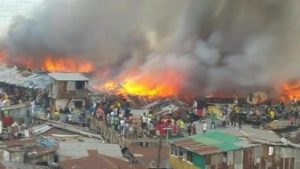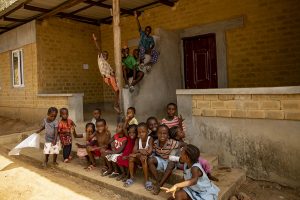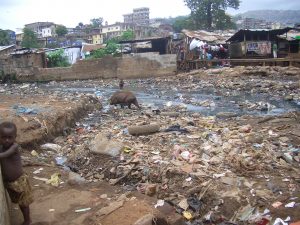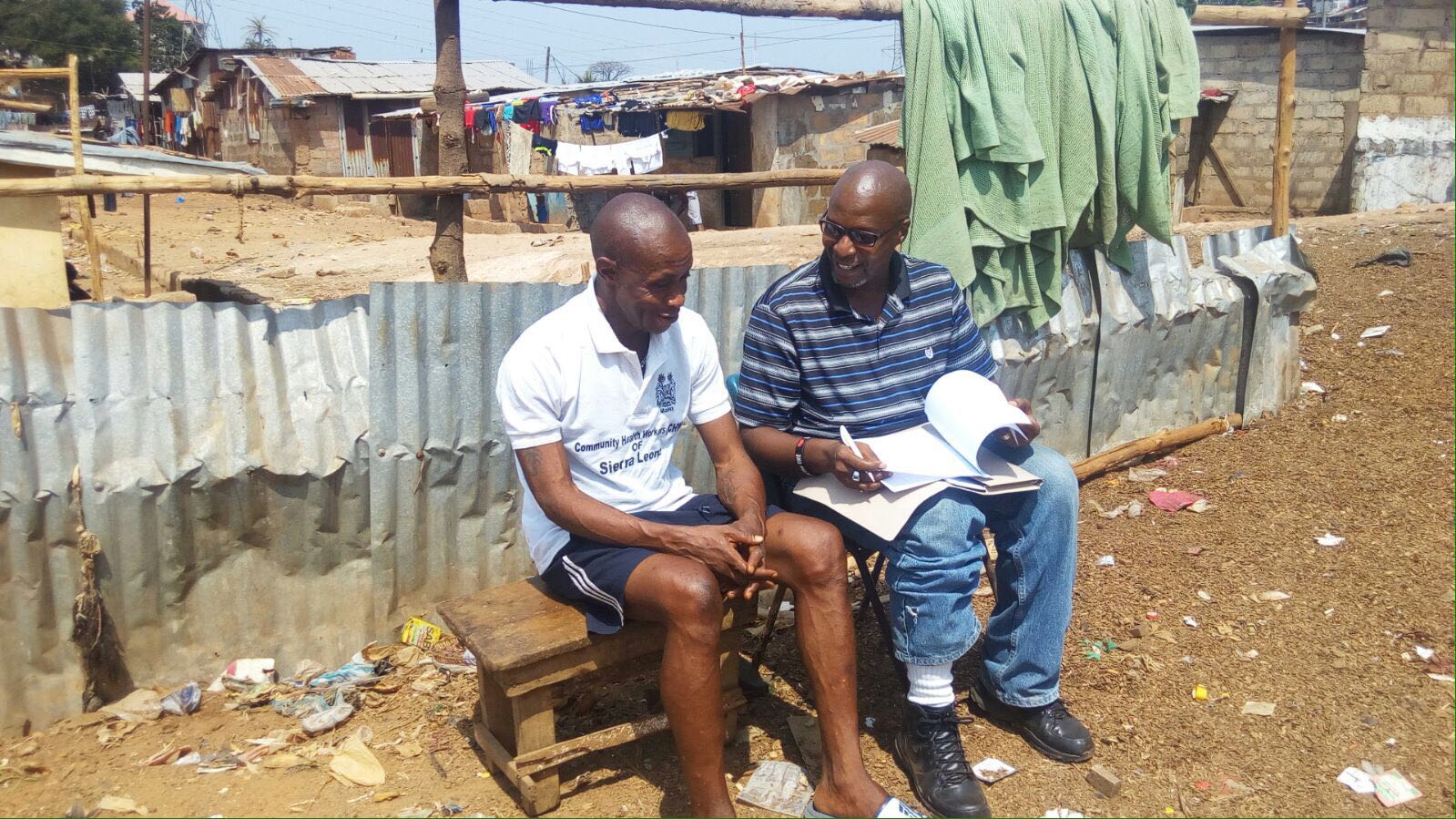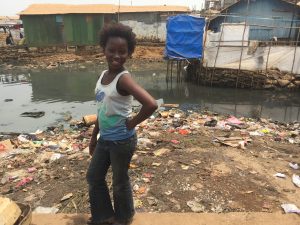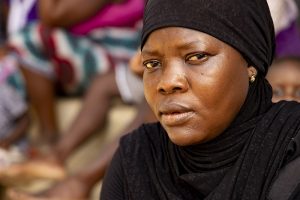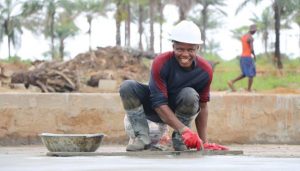Building Communities
The Contrast
“In the heart of our community lies a stark reality—an existence marked by dire living conditions that stretch the limits of human endurance. Our homes, overburdened with cracked walls, cramped spaces, and leaking roofs, paint a distressing picture of daily struggle, particularly when the rains pour down upon us.
The rent we pay for these meager shelters in Kroo Bay—barely more than temporary structures—is staggeringly high, despite their deplorable state. A single room and a parlour demand an annual fee of Le 5,000,000 ($250), an exorbitant sum for most, compelling us to share these inadequate spaces with our loved ones just to afford a semblance of shelter.
But shelter is only one facet of our struggle. Clean water is a luxury we chase daily, as the very trenches that line our slum are brimming with filth, hosting diseases like typhoid, bilharzia, and cholera. Even basic sources like public taps or protected wells remain financially out of reach, priced beyond what our impoverished pockets can afford.
The appalling lack of sanitation is a breeding ground for despair. The ground, littered with refuse, becomes the repository for our waste in the absence of proper toilets. Stagnant water lurks in trenches, emanating a sickening stench that permeates every corner of our existence.
Diseases like Cholera sweep through our community at an alarming pace, constantly threatening our fragile existence. The fear of fire is ever-present, a specter that haunts us after witnessing numerous homes lost just last October in 2023.
Education, a beacon of hope for many, remains an elusive dream here. Dropout rates among our youth are staggering, with young girls—some no older than thirteen or fourteen—forced out of school due to early pregnancies, despite valiant efforts by NGOs and initiatives like ‘HANDS OFF OUR GIRLS.’ In the face of daily hunger, education becomes a luxury that few can afford, forcing children into menial jobs to help sustain their families.
As you walk through our streets, the sight of our little ones peddling bananas, eggs, sweets, and other goods becomes a distressing testament to our plight, a stark reminder of the harsh realities we endure.
Your support isn’t just a donation; it’s a lifeline—a chance to transform these grim circumstances into a ray of hope. Your generosity could mean clean water, decent shelters, and an opportunity for education for our children. Together, we can rewrite the story of Kroo Bay, transforming despair into a narrative of resilience and possibility.”
– Mr. / Mrs. Akim Kallo
LIVING IN DESTINY VILLAGE
The village is a complete opposite of what we use to live in the KrooBay.
The first thing I noticed in the calmness and safety of our children in Destiny Community. The first time ever my children do not wake very early in the morning to fetch water in jerry cans and buckets for cooking, washing, drinking, or bathing, for me and my family now wash under a shower which a very new experience.
The classrooms in Destiny Grace Academy are very spacious and conducive for learning. For the first my fourteen-year-old daughter is happy to go to school and to study conveniently at night.
Selecting those who want an Opportunity
The need is overwhelming. In terms of physical need, most people we interview qualify for help! Our planning for this began several years ago as we walked the street of the slums, listening to leaders, children, landlords and tenants, employed and unemployed. The insights, together with now having had residents for several years continues to provide profound learning.
Home Leone’s development approach is community-led. We recognise the importance of researching the existing community structures and practices in order to understand what works well and what leads to dysfunction. We are committed to an intensely participatory process that engages beneficiaries from the beginning in the design and implementation of the project.
Due to Freetown’s vast housing needs, a detailed and in-depth process of beneficiary selection has been developed in order to identify firstly, those most vulnerable and secondly, those most likely to thrive within the context of Destiny Village. Along with determining whom, this process has also helped to illustrate more specifically how individuals are impacted by their living conditions and what their relocation needs may be. This process has been designed for replication to scale with the view that thousands of families are expected to apply and to be relocated to new homes.
This is the hardest part of what we do. Scarcity and dependency mentality pervades so many. A lack of education and rote learning resulting in a lack of critical thinking training, makes what we are doing face many challenges.
Training
Home Leone’s training builds on the Sierra Leone’s existing practice, wisdom and culture. Our Individual Development and Training (IDAT) group have built significant input which is being delivered to residents, management and applicants. Working with Anti-virus group is a key methodology bringing life change and insight.
Addressing a range of social and economic issues, a multi-sector approach incorporates; health, education, vocational skills, personal growth, environment and waste management, social justice and human rights and community.
There is a focus within our approach that each resident has a valuable contribution to make. They are encouraged to be an active member of the learning process along with the whole group. This approach also ensures that even if they do not have any formal education, which is common within the target slum communities, through story telling they are able to learn and understand. It is important within the Home Leone training workshops that an environment of trust, openness and acceptance is encouraged in order to create an effective learning environment.
Taking references and skills is also considered though the primary selection criteria considers attitude and motivation. We start with people who we hope want to make the most of the opportunity.

